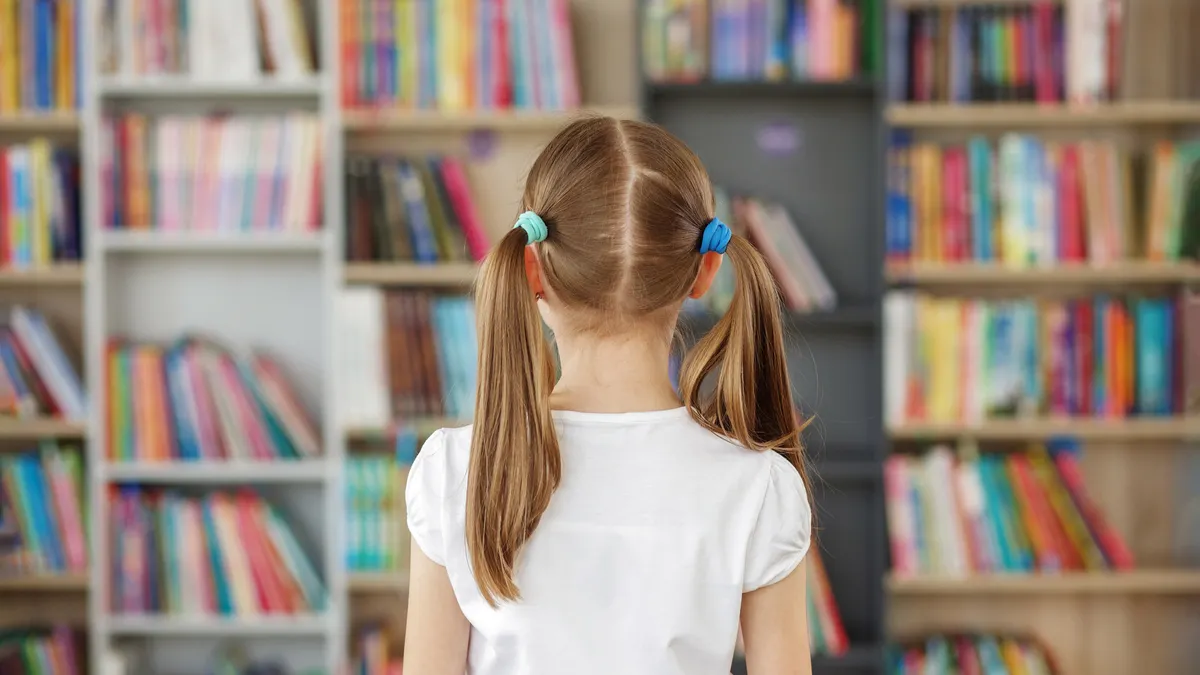A new law that could usher in an end to the popular and controversial video app TikTok across the U.S. may potentially have a big impact on students who use the social media platform for fun and learning — and for teachers who rely on the tool for instruction, to connect with other educators and to share the funny things students say.
As part of a large foreign aid package, Congress began the process of banning TikTok through passage of H.R. 815 this week. President Joe Biden signed the bipartisan measure into law on Wednesday.
Supporters are concerned the Chinese-owned technology could be a threat to national security, while opponents cautioned that its ban would infringe upon First Amendment rights.
Some have already predicted a long court battle.
"Banning a social media platform that hundreds of millions of Americans use to express themselves would have devastating consequences for all of our First Amendment rights, and will almost certainly be struck down in court," said an April 23 statement by the American Civil Liberties Union.
The new law requires TikTok's parent company ByteDance Ltd. to divest its U.S. assets within about nine months or face a ban in the U.S.
The education field seems to have had a love-hate relationship with the app that provides a platform for short user-generated videos.
Many educators use the tool to develop quick summaries of lessons or to illustrate the lighter side of education.
Students, meanwhile, use the short, accessible videos for everything from understanding algebraic equations to finding hacks for organizing their notebooks. A 2022 analysis by Study.com, an online learning platform for K12 curriculum, college courses and test preparation, found English was the most popular core subject in educational TikTok videos, followed by history and science.
A 2023 study from Common Sense Media found that 97% of students ages 11-17 use their personal phone during the school day, and TikTok was the most popular social media app used. Half of the study's participants said they use TikTok, with the median use clocking in at one hour and 52 minutes per day.
TikTok users were more likely to spend multiple hours per day on the app compared to other social media platforms, especially during school and overnight hours. For instance, the daily median use on YouTube was 40 minutes and for Instagram, it was 16 minutes.
In the past year, hundreds of school districts across the country have sued ByteDance Ltd and other social media companies claiming their apps are addictive for young users and are to blame for increased mental health challenges in youth. Several states have taken steps to restrict TikTok in schools.
Easing distractions
For one school leader, a TikTok ban could be an opportunity to ease distractions in the classroom.
One of the main reasons Dothan Preparatory Academy, a public middle school in Alabama, instituted a cell phone ban this school year was due to concerns over students’ behavior on TikTok, said Charles Longshore, one of the school’s assistant principals.
“Last year, all of our what you would call ‘middle school drama,’ 90% of it stems from something online," said Longshore. "Whether that was Instagram chats and group messages on there, or we had a lot of instances of kids trying to do the latest Tik Tok trends and things like that just any spare minute they had, so it became a huge distraction.”
Dothan's policy, which began in the 2023-24 school year, prohibits students from using their cell phones during the school day, Longshore said. Every educator receives a lock box, and students must hand over their phones to their homeroom teachers who then lock up the phones until five minutes before school dismissal.
“Because TikTok was so, I guess, unfiltered … we would have all sorts of potential issues where it came to like pornography or foul language or violence, and they [students] were looking at these things, and so that presented problems,” Longshore said. “We have much less distraction and much less drama from cell phones because we did adopt that policy.”
A nationwide TikTok ban, Longshore said, would help students focus in the classroom. He added, however, that he wouldn’t be surprised if students naturally pivoted to an alternative yet similar social media platform.
Longshore also said the new TikTok law presents an opportunity for teachers, particularly in the social sciences, to instruct students about why lawmakers have gravitated toward addressing fears on a national level around a platform that students think is primarily for them.
From a lot of perspectives, there’s a fear attached to it [TikTok]. There’s a fear of stealing information, and governments versus governments, and I think that’s a cool thing to address and talk about.”

















